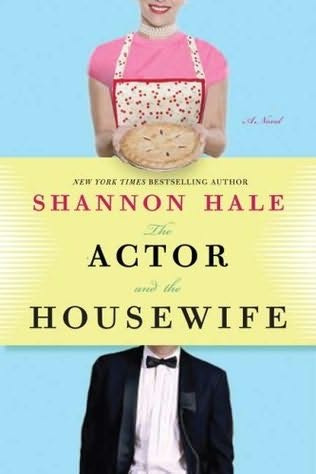Labels are terribly useful to the majority of human beings. I find them useful insofar as I understand the definition of the label used, although this is usually a 50/50 proposition for me. As a method of efficient inventory control and meeting customer expectations, genre labels simply can’t be beat. The publisher knows which buyer to go to and the bookseller knows where to shelve it.
 But lately, there’s been a lot of cross- and mis-labeling going on inside genre fiction, leading readers to scratch their heads and wonder, “This isn’t X. Why did they put it on X shelf?”
But lately, there’s been a lot of cross- and mis-labeling going on inside genre fiction, leading readers to scratch their heads and wonder, “This isn’t X. Why did they put it on X shelf?”
Science fiction with romantic elements or a science fiction romance or a romance with a science fiction backdrop?
Fantasy, ditto above permutations.
Paranormal, ditto above permutations.
Speculative fiction/steampunk/cyberpunk, ditto above permutations.
Suspense, ditto above permutations.
Erotic! and ditto above permutations.
Mystery, ditto above permutations.
Spy, ditto above permutations.
Whatever other genres I missed, ditto above permutations.
A reader may or may not be willing to go along with the story regardless what it is and where it takes them (that’s the kind of reader I am), but some buy books specifically on spine label, cover cues, and back blurb so that they can get exactly (or pretty close to it) what they want.
Today, some independent publishing friends and I have been discussing our books, about how disparate our stories are, how we view ourselves in completely different genres, and how our books all have one thing in common: They are not classifiable, except by “drama.” (Well, why can’t “drama” be its own genre? Or is it? I don’t see it used anywhere.) They’re all a mix, all dark and gritty, with romance and a happily-ever-after (the one and only real requirement to be considered romance).
I don’t know how to classify The Proviso. I never did. Drama? Yeah, plenty of that. Family saga? Check. Epic? Uh, most definitely, as it takes place over the course of 5 years. But epic what? I can’t think of a book I could compare it to. Healthy doses of religion and spirituality mixed in with money and explicit sex? What? What’s anybody supposed to do with that? It’s not LDS romance/literature/fiction (defined as anything that could be sold at Deseret Book/Seagull), although I could call it Mormon fiction if a criteria of “Mormon” is that a Mormon wrote it. I call it a romance because I see myself as a romance writer.
The editors at one publishing house liked The Proviso, passed it around to get a roundtable opinion, but ultimately rejected it. “We don’t know where to put it. The religion isn’t going to go over with our erotic romance readers and the explicit sex isn’t going to go over with our inspirational readers.” That was good to know.
I know that RJ Keller, whose Waiting for Spring, got the attention of several agents, was told that she would have to extensively revise her book to be commercially viable. Most egregiously, she’d have to cut out the drug references, except…the drugs is the keystone of her plot. Hello? She finds her book marketed on all the free sites as a romance, but she does not consider herself a romance author.
Kel pointed me in the direction of Lauri Shaw, whose book, Servicing the Pole (that title’s as ballsy as using The Bewbies for my cover), had a lot of interest, but would have required extensive changes in order for it to be considered commercial. This is from Ms. Shaw’s website:
However, when professionals who were interested in selling my work insisted I’d need to make drastic changes to Servicing the Pole to make it a commercial prospect, I had to ask myself if the end justified the means. After all, these people were able to guarantee me little to nothing on the front end.
I was told that the book was too dark. That I’d have better luck catching the reader’s fancy if I made the story into something upbeat. The suggestion I took the most issue with, though, was that I ought to transform Emily into a more ‘likeable’ character. To do so would have been to change virtually every theme in this story.
I’m proud of the story I’ve written. It’s a story I can stand behind.
Servicing the Pole also has a happily-ever-after (or at least a happily-for-now), but I don’t know how Ms. Shaw labels herself as a writer, as I have not spoken with her.
Note: Our books are all dark, gritty, nasty, twisted, with a happily-ever-after. That is what’s genre-busting about them.
You can call ’em drama or epics or family sagas, or whatever you want.
Kel calls ’em “gritty romance.”
Gritty romance.
I like it.
 And I’m only 50 pages in.
And I’m only 50 pages in.
 But lately, there’s been a lot of cross- and mis-labeling going on inside genre fiction, leading readers to scratch their heads and wonder, “This isn’t X. Why did they put it on X shelf?”
But lately, there’s been a lot of cross- and mis-labeling going on inside genre fiction, leading readers to scratch their heads and wonder, “This isn’t X. Why did they put it on X shelf?”